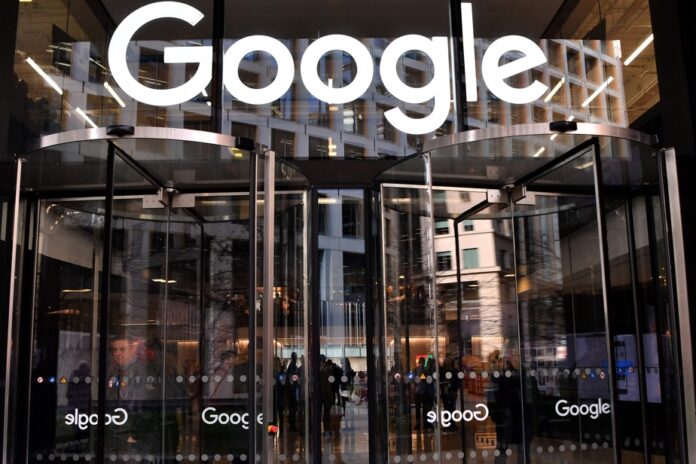(Ottawa) Google is tearing apart Ottawa’s draft regulations which specify the scope of the Online News Act. In its document submitted to the federal government during consultations, the company mentions that it could suspend any link to Canadian journalistic content from its search engine.
The “web giant” does not go so far as to state with certainty that it will carry out its threat to permanently shut off the news tap as soon as Bill C-18 comes into force, scheduled for December.
“We are looking for a way out that can avoid this,” a Google representative said Friday during a technical briefing for journalists, adding that they were waiting to see the final regulations.
The chances that a complete withdrawal of the news will be avoided are diminishing, however, we can understand from the comments made by the company, since it judges that “critical structural problems of Bill C-18” have not been resolved. not been addressed by the proposed regulations.
The federal government, when it presented its draft regulations in September, nevertheless sought to respond to Google’s concerns and requests.
However, at the end of a 30-day consultation on the subject, the company expressed its dissatisfaction: first in a statement sent to the media on Monday, then on Friday in the consultation documents made public.
“While the Regulation seeks to ‘clarify the application of the law,’ it unfortunately creates further uncertainty by attempting to transform the law’s mandatory negotiation model into an imposition model,” it reads.
Not only does Google believe that “the regulation fails […] to correct” what it sees as fundamental shortcomings in C-18, but it also believes that it “even worsens them in certain cases”.
“The result of this exercise is a hybrid model that represents the worst of both worlds,” it was also written.
According to the “web giant”, Ottawa’s roadmap amounts to “imposing the obligations of a tax without providing certainty and asking Google to absorb all the responsibilities and costs associated with negotiating agreements and disbursing funds, without the company having the flexibility to make real arrangements that were intended to address its concerns.”
Bill C-18 aims to force digital giants to enter into compensation agreements with news media for sharing their content.
The draft regulations clarified that any platform with a turnover of at least one billion Canadian dollars per year and with a minimum of 20 million users in Canada each month will be subject to the law.
Ottawa expects the legislation to apply to Meta, Facebook’s parent company, and Google – provided they allow news sharing.
Platforms that do not allow such sharing will escape the provisions of the law.
Meta has already been blocking Canadian users of its platforms since August. Google has threatened to do the same, but has not yet taken action, except temporarily, last spring, to conduct “tests.”
In its documents published Friday, the digital giant does not decide, although a definitive withdrawal of the news seems more and more likely.
Even in the scenario where the company decided to forego a complete block and would therefore be subject to Bill C-18, Google is talking about a possible suspension of links.
The company makes this mention in a passage criticizing the timelines provided for in law and regulations. More precisely, deadlines are provided for a platform to be exempt from a mandatory negotiation framework which also has its own deadlines. To be exempt, a “web giant” must voluntarily enter into agreements with a “range” of players, including local media.
Google believes it could find itself in a situation where its exemption request is being processed before the Canadian Radio-television and Telecommunications Commission (CRTC) at the same time as it is engaged in a mandatory negotiation process.
“The timing issue remains, which could put Google in a position where it would have to suspend links to news content during the process of obtaining an exemption,” it is argued.
The exact contribution that Google may have to pay to the media will be established based on a formula which could still be modified.
Under the current federal proposal, compensation will be based on the amount of the company’s overall revenue multiplied by Canada’s share of global GDP, then multiplied by 4%.
Google calls this rate “an arbitrary figure that overestimates the commercial value of news links.”
According to government estimates, the digital giant could have to pay 172 million per year. Google vigorously disputes the validity of this amount.
The company judges that the government has “inflated” its estimates since in December, an assistant deputy minister of Canadian Heritage, Thomas Owen Ripley, instead said that Ottawa expected an impact of around 150 million. This previous estimate also included the possible contribution of Meta.
During Friday’s technical briefing, a Google representative said that Ottawa told him that it “would make sense” for the digital giant to contribute, at most, two-thirds of the approximately 150 million, which equals 100 million.
“Therefore, that’s the kind of range we’re looking at. […] This is an amount we are talking about,” it was argued.
Called to comment on the company’s statements, the Minister of Heritage, Pascale St-Onge, assured that the federal government will continue “to communicate with those who have questions or concerns, including the web giants.”
“We are staying the course to promote the creation of fair commercial agreements between web giants and news media,” she argued in writing.
Earlier this week, she said she was “still confident” of finding common ground with Google even if the digital company had already expressed its dissatisfaction.















